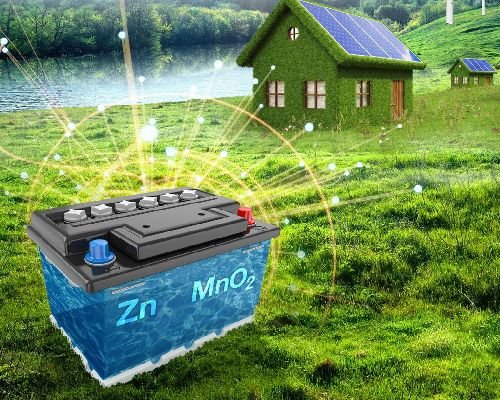High voltages in Li-ion batteries have allowed it to capture the electric vehicle, mobile electronics and grid-storage markets.
Li-ion batteries contain elements which are geopolitically sensitive and not common to India, so development of energy storage technologies has taken a backseat, while countries like China have benefited tremendously.
For renewable energy to grow in India and curb its pollution problems, development of indigenous energy storage batteries is extremely vital.

A Mumbai-born scientist Dr Gautam Yadav has invented a new high-voltage, energy-dense rechargeable manganese dioxide (MnO2) zinc|(Zn) battery, which could be an alternative to Li-ion batteries that have dominated the energy storage landscape for decades.
The new batteries exhibit high voltages between 2.45-2.8 V, delivering high capacities close to its theoretical value, which is a first for aqueous-based batteries.
Till now there is no aqueous Zn-based battery that has crossed the 2 V barrier. The energy density stored by this new high-voltage aqueous battery can be much higher than the currently dominant lithium (Li)-ion battery, Yadav added.
The new high-voltage MnO2|Zn batteries contain raw materials that are native to India the country has rich sources of manganese, used to make MnO2.
The aqueous nature of the battery also reduces its manufacturing costs considerably which are known to be high for Li-ion batteries due to the flammable nature of its electrolyte.
However, Prof Arindam Sarkar of chemical engineering dept. at IIT-Bombay feels that the lifetime of such a battery will be very low. The current battery chemistry will work for shorter times and so would need more frequent recharges.
Reference- The New Indian Express, Journal ‘ACS Energy Letters’






